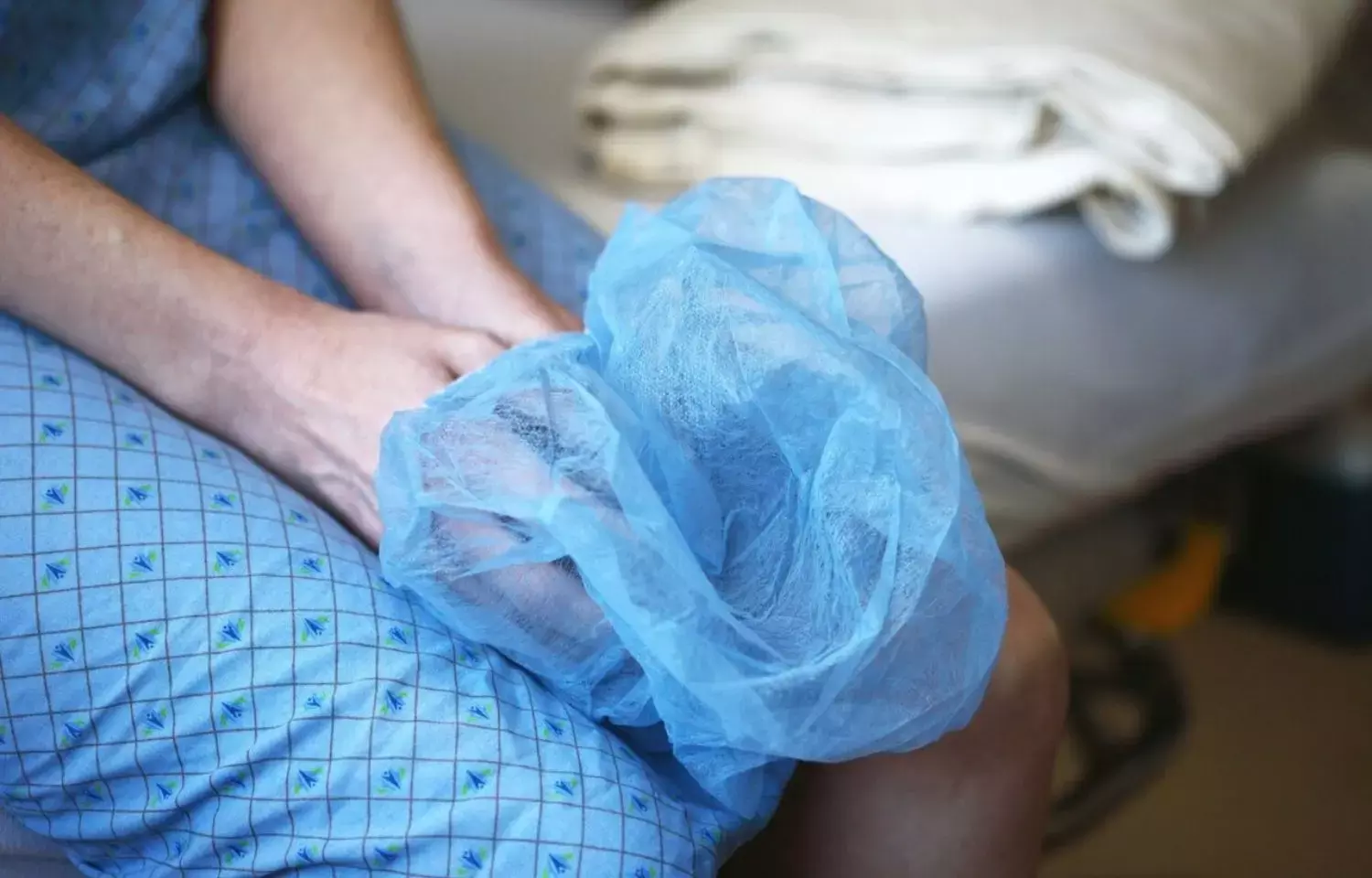- Home
- Medical news & Guidelines
- Anesthesiology
- Cardiology and CTVS
- Critical Care
- Dentistry
- Dermatology
- Diabetes and Endocrinology
- ENT
- Gastroenterology
- Medicine
- Nephrology
- Neurology
- Obstretics-Gynaecology
- Oncology
- Ophthalmology
- Orthopaedics
- Pediatrics-Neonatology
- Psychiatry
- Pulmonology
- Radiology
- Surgery
- Urology
- Laboratory Medicine
- Diet
- Nursing
- Paramedical
- Physiotherapy
- Health news
- Fact Check
- Bone Health Fact Check
- Brain Health Fact Check
- Cancer Related Fact Check
- Child Care Fact Check
- Dental and oral health fact check
- Diabetes and metabolic health fact check
- Diet and Nutrition Fact Check
- Eye and ENT Care Fact Check
- Fitness fact check
- Gut health fact check
- Heart health fact check
- Kidney health fact check
- Medical education fact check
- Men's health fact check
- Respiratory fact check
- Skin and hair care fact check
- Vaccine and Immunization fact check
- Women's health fact check
- AYUSH
- State News
- Andaman and Nicobar Islands
- Andhra Pradesh
- Arunachal Pradesh
- Assam
- Bihar
- Chandigarh
- Chattisgarh
- Dadra and Nagar Haveli
- Daman and Diu
- Delhi
- Goa
- Gujarat
- Haryana
- Himachal Pradesh
- Jammu & Kashmir
- Jharkhand
- Karnataka
- Kerala
- Ladakh
- Lakshadweep
- Madhya Pradesh
- Maharashtra
- Manipur
- Meghalaya
- Mizoram
- Nagaland
- Odisha
- Puducherry
- Punjab
- Rajasthan
- Sikkim
- Tamil Nadu
- Telangana
- Tripura
- Uttar Pradesh
- Uttrakhand
- West Bengal
- Medical Education
- Industry
Roux-en-Y gastric bypass associated with alcohol use disorder related hospital admissions: JAMA

A new study by Nadim Mahmud and team showed that compared to both sleeve gastrectomy and the MOVE! program, Roux-en-Y gastric bypass (RYGB) was linked to a higher incidence of alcohol use disorder (AUD)-related hospitalizations. The findings of this study were published in the Journal of American Medical Association - Surgery.
Roux-en-Y gastric bypass is one of the bariatric surgical methods that has been linked to issues connected to alcohol use. The significant potential confounders of changing body mass index (BMI) or alcohol usage over time, however, have not been well taken into account in prior investigations. Therefore, this study was carried out to compare referral to a weight management program alone with the effects of RYGB, sleeve gastrectomy, or gastric banding on subsequent alcohol use disorder-related hospitalization and all-cause death.
127 Veterans Health Administration medical facilities in the US were included in this cohort research. The study included patients who underwent RYGB, sleeve gastrectomy, or gastric banding or who were referred to MOVE!, a weight management program, and who had a BMI of 30 or higher between January 1, 2008, and December 31, 2021. The BMI is calculated as weight in kilograms divided by height in meters squared. The primary study criteria included RYGB, sleeve gastrectomy, gastric banding, or referral to the MOVE! program. The main result was how long it took until an AUD-related hospitalization occurred after bariatric surgery or a MOVE! Referral.
The key findings of this study were:
1. 1854 patients in total had RYGB, 4211 underwent sleeve gastrectomy, 265 underwent gastric banding, and 1364 were sent to MOVE! In comparison to MOVE! and sleeve gastrectomy, RYGB was linked with a higher risk of AUD-related hospitalization in IPTW Cox regression models that took time-updating alcohol usage and BMI into account.
2. Sleeve gastrectomy and MOVE! did not differ significantly from one another. Although RYGB was linked to a lower mortality risk than MOVE!, this link was weakened over time due to rising alcohol use.
In conclusion, increased alcohol usage reduced the mortality benefit of RYGB, emphasizing the significance of proper patient identification and alcohol-related counseling for patients receiving this treatment.
Reference:
Mahmud N, Panchal S, Abu-Gazala S, Serper M, Lewis JD, Kaplan DE. Association Between Bariatric Surgery and Alcohol Use–Related Hospitalization and All-Cause Mortality in a Veterans Affairs Cohort. JAMA Surg. Published online December 14, 2022. doi:10.1001/jamasurg.2022.6410
Neuroscience Masters graduate
Jacinthlyn Sylvia, a Neuroscience Master's graduate from Chennai has worked extensively in deciphering the neurobiology of cognition and motor control in aging. She also has spread-out exposure to Neurosurgery from her Bachelor’s. She is currently involved in active Neuro-Oncology research. She is an upcoming neuroscientist with a fiery passion for writing. Her news cover at Medical Dialogues feature recent discoveries and updates from the healthcare and biomedical research fields. She can be reached at editorial@medicaldialogues.in
Dr Kamal Kant Kohli-MBBS, DTCD- a chest specialist with more than 30 years of practice and a flair for writing clinical articles, Dr Kamal Kant Kohli joined Medical Dialogues as a Chief Editor of Medical News. Besides writing articles, as an editor, he proofreads and verifies all the medical content published on Medical Dialogues including those coming from journals, studies,medical conferences,guidelines etc. Email: drkohli@medicaldialogues.in. Contact no. 011-43720751


